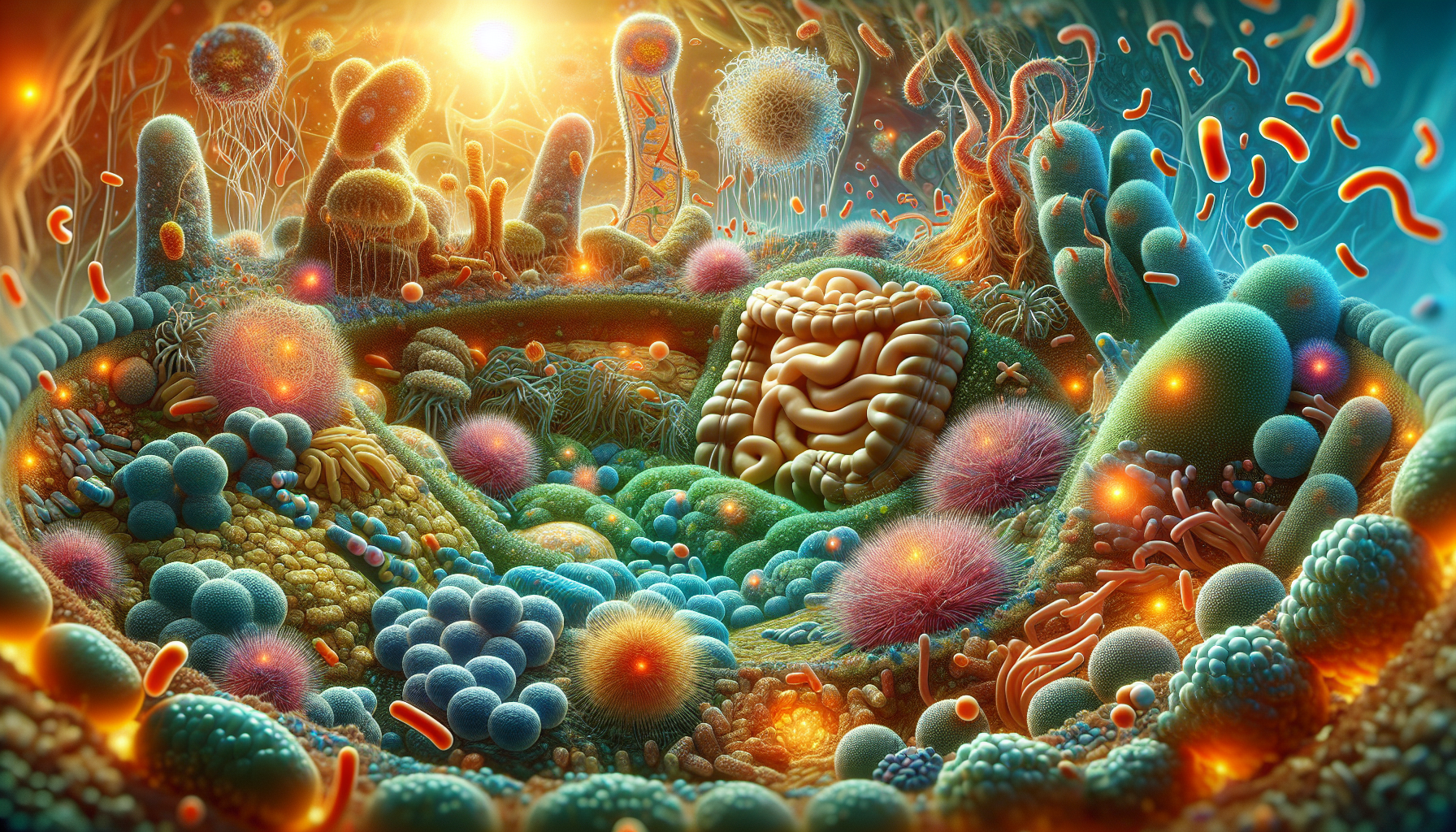Antibiotics have been the cornerstone of modern medicine, effectively treating bacterial infections that were once life-threatening. However, their success comes with a caveat: the disruption of the delicate ecosystem within our digestive system, known as the gut flora or microbiome. The ramifications of such disruption can manifest as various side effects, including but not limited to gastrointestinal discomfort, increased susceptibility to infections, and even long-term health implications.
Understanding the complexity of gut flora and its interaction with antibiotics is crucial for maintaining digestive health and overall well-being. In this comprehensive exploration, we will delve into the strategies for balancing gut flora and mitigating the side effects associated with antibiotic use.
The Gut Flora: An Intricate Microbial Universe
Our gut flora comprises a complex community of microorganisms, including bacteria, fungi, viruses, and protozoa. This intricate microbial universe plays a pivotal role in numerous physiological processes, such as digestion, vitamin production, and the regulation of the immune system. A harmonious balance within this community is essential for optimal health.
When antibiotics are introduced to this environment, they often do not discriminate between harmful pathogens and beneficial microbes, leading to a state of dysbiosis—a microbial imbalance that can disrupt the gut’s normal functions.
The Impact of Antibiotics on Gut Health
Antibiotics can significantly reduce the diversity and number of beneficial bacteria in the gut. This reduction can lead to a range of adverse effects, such as:
- Diarrhea or constipation
- Nausea and vomiting
- Bloating and gas
- Increased vulnerability to infections like Clostridium difficile
- Potential development of antibiotic resistance
To mitigate these effects, it is essential to adopt strategies that support and restore the gut microbiome during and after antibiotic treatment.
Strategies for Restoring and Supporting Gut Flora
There are several approaches to mitigating the side effects of antibiotics and promoting a balanced gut microbiome:
Probiotics and Prebiotics
Probiotics are beneficial live microorganisms that can help replenish the gut’s microbial population. Prebiotics, on the other hand, are non-digestible fibers that serve as food for these beneficial microbes. The Benefits of Probiotic and Prebiotic Combination Therapies illustrate the synergistic effect that supports gut health.
Tailored Nutrition
Diet plays a crucial role in maintaining a healthy gut flora. Consuming a variety of nutrient-dense, fiber-rich foods can create a favorable environment for beneficial bacteria to thrive. For specific dietary advice, the article on Tailoring Nutrition to Combat Irritable Bowel Syndrome provides insights into how dietary adjustments can support digestive health.
Regular Exercise
Moderate exercise has been shown to positively impact gut microbiota composition. The article The Impact of Moderate Exercise on Digestive Function offers a deeper look into how physical activity contributes to a robust and diverse microbial community.
Stress Management
Chronic stress can have a deleterious effect on the gut microbiome. Strategies to manage stress effectively are pivotal in maintaining gut health, as detailed in The Effects of Chronic Stress on Gut Microbiota Composition.
Avoiding Unnecessary Antibiotic Use
It is essential to use antibiotics only when necessary and under the guidance of a healthcare professional to minimize their impact on the gut flora.
External Resources for Further Reading
To further support the points made in this article, consider exploring these external resources:
- A report on the long-term impacts of antibiotics on the gut microbiome provides a scientific perspective on this crucial topic.
- Research on the effectiveness of probiotics in preventing antibiotic-associated diarrhea offers evidence-based insights into probiotic therapy.
- An examination of the role of diet in shaping the gut microbiome can guide nutritional choices for gut health maintenance.
- Insights into exercise and its beneficial effects on gut microbial diversity underscore the importance of physical activity.
- A study on the psychological stress and the gut microbiota sheds light on the gut-brain axis and its implications for microbial health.
Conclusion
The relationship between antibiotics and gut flora is a delicate one, requiring mindful strategies to maintain balance and prevent adverse effects. By harnessing the power of probiotics and prebiotics, tailoring nutrition, engaging in regular exercise, managing stress, and using antibiotics judiciously, individuals can support their gut microbiome and mitigate the side effects associated with antibiotic use.
For a deeper understanding of the connection between digestive health and overall well-being, consider exploring Digestive Health for comprehensive resources and guidance.
Maintaining a balanced gut flora is not only essential for minimizing antibiotic side effects but also for ensuring long-term health and vitality. Through informed choices and lifestyle modifications, we can foster a robust and resilient gut microbiome capable of withstanding the challenges of antibiotic therapy.



